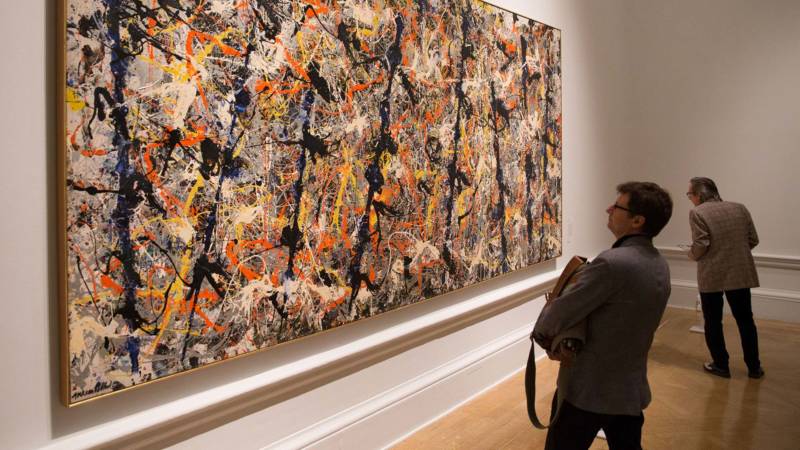Psychology professor Ellen Winner studies how humans interact with art, including what we consider art, how art affects us and why we like what we do. Her new book, “How Art Works” also challenges some commonly held beliefs such as literature’s ability to develop empathy. Winner joins us to discuss her book and her scientific approach to studying art.
The Science of 'How Art Works'
52:29

Gallery visitors stand in front of a painting entitled 'Blue Poles, 1952,' by US artist Jackson Pollock, during a photocall to promote Abstract Expressionism, an exhibition of paintings and sculptures, at the Royal Academy of Arts in London on September 20, 2016. (Daniel Leal-Olivas/AFP/Getty Images)
Guests:
Ellen Winner, professor, department of psychology at Boston College; author, "How Art Works: A Psychological Exploration"<br />
Sponsored